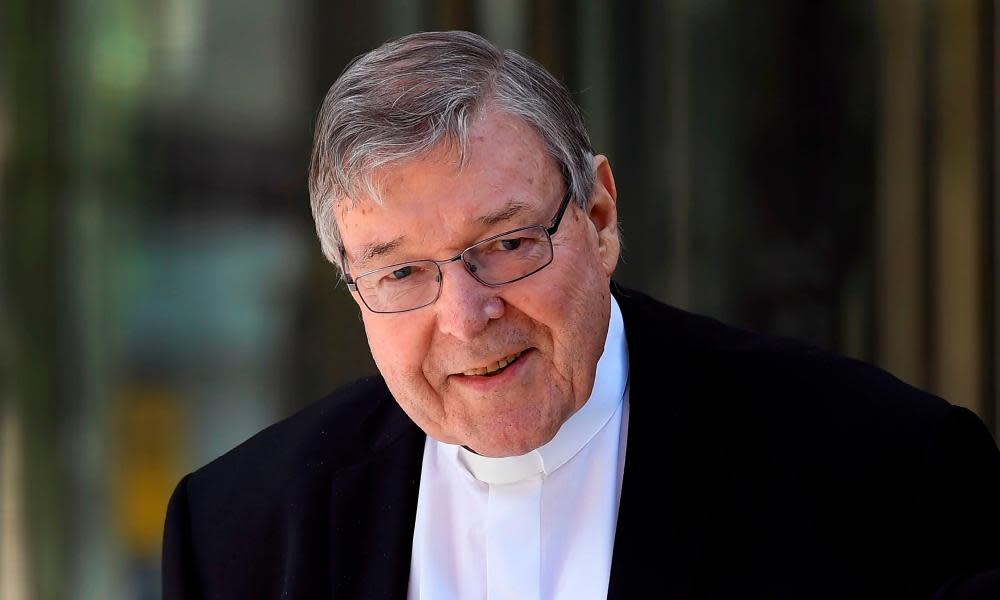George Pell contempt case: charges over media that allegedly breached suppression orders will go to trial

Contempt of court charges against the media amid allegations they breached a suppression order after Cardinal George Pell was found guilty of child sexual assault will go to trial in November.
Pell was acquitted of all charges by the high court on appeal last month. At an administrative hearing at the supreme court in Melbourne on Tuesday, the court heard that there are 21 separate publications, six corporate groups and 19 individual journalists involved in the contempt of court case.
The county court chief judge, Peter Kidd, imposed the suppression order on 25 June 2018 over the trial to prevent “a real and substantial risk of prejudice to the proper administration of justice” because Pell was facing a second trial on separate charges. Despite this, when Pell was convicted in December 2018, numerous publications in Victoria, throughout Australia and overseas reported the verdict before the suppression order was lifted and despite some not attending the trial. It is alleged this placed the second trial, including the alleged victims seeking justice and Pell’s ability to defend himself, at risk.
Matthew Collins QC, representing the defendants, said “the respondents are very anxious for these matters to be resolved finally”.
“It’s been hanging over their heads for far too long.”
The respondents include The Herald and Weekly Times, Nationwide News, The Age, Fairfax Media (now owned by Nine Entertainment, also a respondent), Mamamia, Macquarie Media and individual journalists including Lisa Davies, Charis Chang, Michael Bachelard and Deborah Knight.
Lisa De Ferrari SC, representing the office of public prosecutions, which brought the charges against the media, said one trial should be held.
“We certainly don’t see any problem since it is a trial before a judge, and everyone is represented by the same lawyer, for everyone to go ahead at one time,” she said. “The judge can discern which evidence is related to which respondent.”
Collins said his clients held a different view.
“It would do an injustice to require journalists from rival news organisations to face trial at the same time in respect of allegations that would never ordinarily be heard together, just because they have [their occupation] in common,” he said.
Justice John Dixon asked the parties as to whether they had considering splitting the trial into liability and penalty hearings.
“There’s probably no point in considering questions that go into penalty until the extent of liability is resolved,” he said. “Things like extent of circulation, and circulation outside of Victoria.”
De Ferrari responded that “these are knotty issues we really have to come to grips with”.
She said the respondents had said they would not give any notice of evidence or tender any documents in liability until the close of the prosecution’s case.
The second trial Pell was facing was dropped on 26 February 2019, owing to a lack of admissible evidence, allowing the suppression order to be lifted.
The matter was adjourned until July.

 Yahoo News
Yahoo News 
